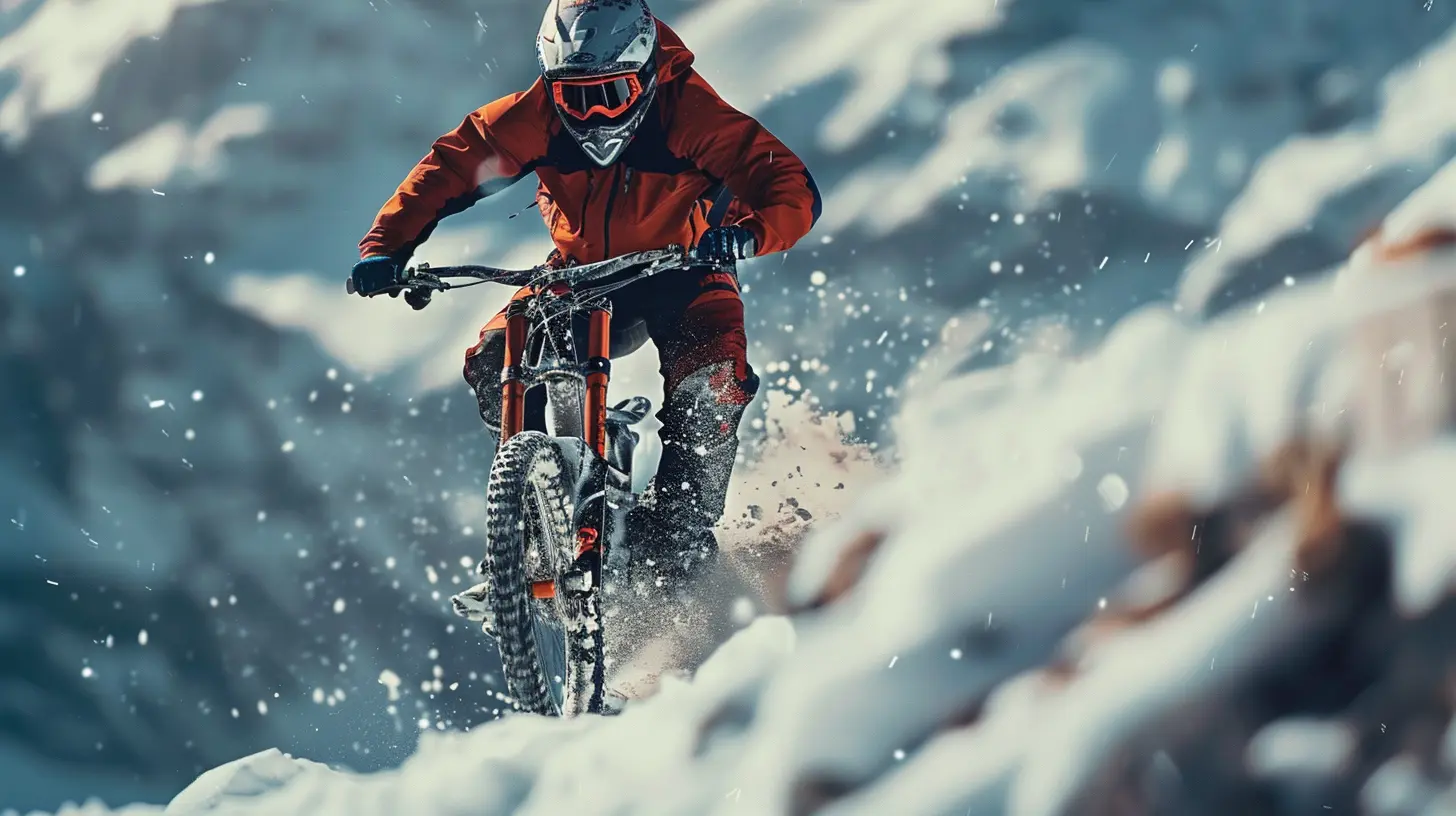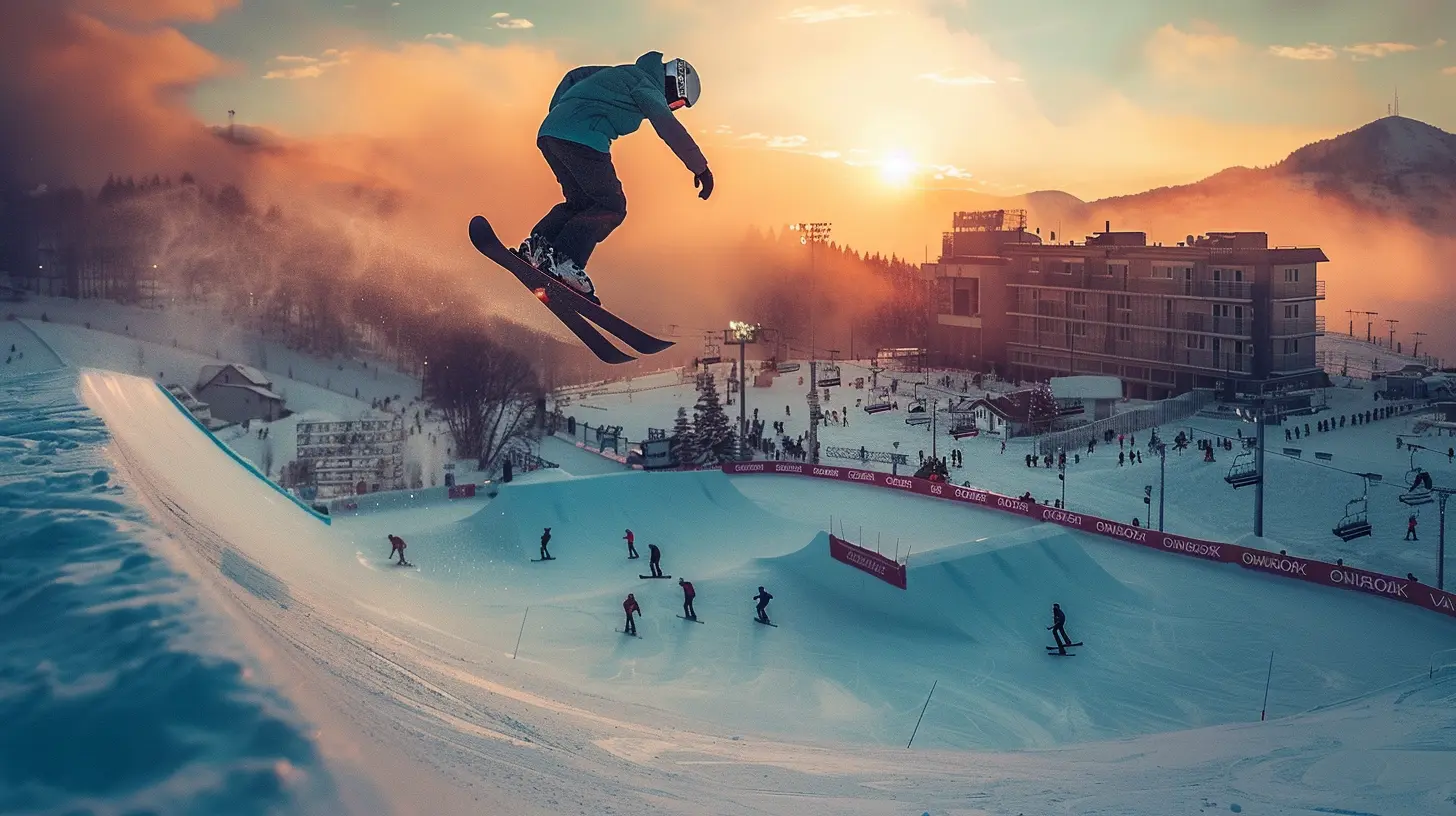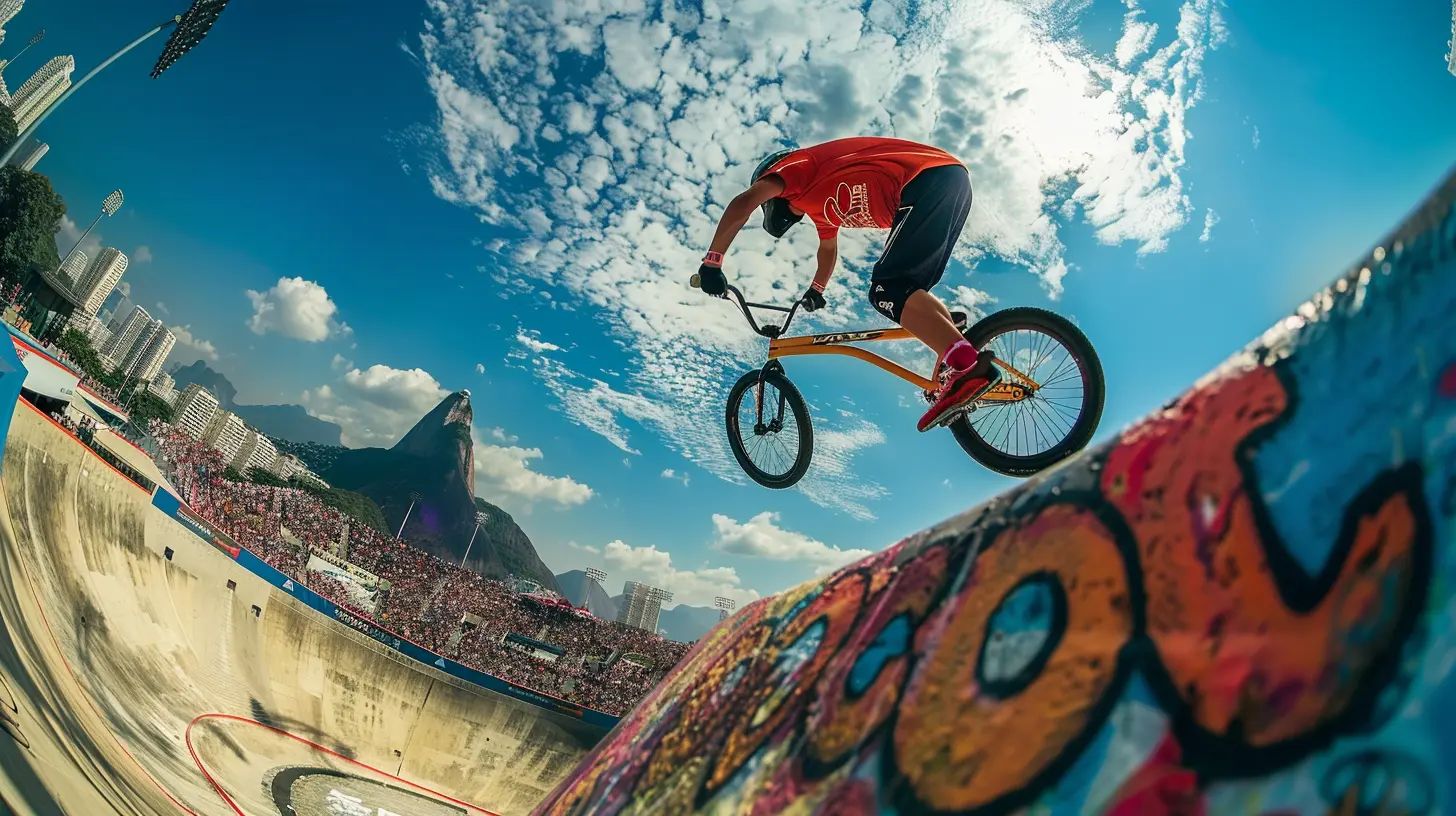The Future of Extreme Sports in the Olympics
23 June 2025
Alright, adrenaline junkies and couch-side sports fanatics, let’s talk about something that’s flipping, grinding, and skydiving its way into the most traditional sports arena on the planet—the Olympics. That’s right—extreme sports are not just for TikTok, YouTube reels, and your buddy with the GoPro anymore. They're going big-time, and the Olympic rings are getting a wild, gnarly makeover.
So grab your helmet and buckle up, because we’re diving headfirst into the high-octane, no-holds-barred future of extreme sports in the Olympics. It’s going to be loud, fast, and unapologetically intense.
A New Era of Olympic Vibes
Let’s be real—the Olympics haven’t always screamed “cool.” They’ve been classy, competitive, and occasionally jaw-dropping, but cool? Not quite.Enter: skateboarding, surfing, and sport climbing.
These sports made their Olympic debut at Tokyo 2020 (yep, we remember it was actually held in 2021—thanks, global pandemic), and they brought a whole new flavor. Suddenly, the Olympics didn’t just appeal to fans of track and field or swimming; now, they were tapping into skater culture, surf vibes, and the vertical insanity of climbing steep walls like Spider-Man on caffeine.
And trust me, that was just the beginning.
From Underground to Mainstream: A Culture Shift
Here’s the juicy part. Extreme sports used to be rebels. The “bad boys” (and girls) of the sports world. Not so long ago, Olympic purists turned up their noses at the idea of skateboarding sharing space with gymnastics.But the Olympic committee saw the light. They realized these sports aren’t just fads—they’re lifestyle movements. Want proof? Skateboarding has billion-dollar industries behind it. Surfing communities are global. Climbing gyms are opening faster than Starbucks.
What we’re witnessing is a full-on cultural shift—from traditional, uniform sports to raw, expressive, and often chaotic ones. The Olympics are adjusting their tie and trying to hang with the cool kids.
Why Extreme Sports Are Gaining Olympic Ground
Okay, let’s talk about the “why.” Why are extreme sports suddenly getting VIP invites to one of the most elite clubs in sports? The answer’s got layers, like a solid kickflip.1. Younger Audiences Are EVERYTHING
The International Olympic Committee (IOC) is in a bit of a pickle. Younger generations weren’t connecting with the Olympics the way boomers and Gen X did. The solution? Get relatable.Extreme sports bring that authenticity, that edge, and most importantly—that coveted youth appeal. It’s not just about medaling now, it’s also about style, creativity, and attitude. That’s the language of Gen Z and younger millennials.
2. Content Goldmine for Social Media
Let’s face it—fast-paced, jaw-dropping tricks are way more clickable than a shot put replay. Extreme sports are made for Instagram reels, TikToks, and highlight montages. The IOC isn’t dumb—they know content is king.3. Inclusivity and Accessibility
You don’t need a million-dollar training facility to skateboard or climb. A parking lot and determination will do just fine. That makes extreme sports more accessible globally, which is a win-win when aiming for diversity and representation.
The Rising Stars: What’s In and What’s Next?
Sure, we’ve already seen skateboarding, surfing, and climbing jump into the Olympic pool. But that’s just the warm-up act. Here are the sports either already on the Olympic stage or hovering around the edge waiting their turn.Skateboarding
Already an Olympic baby, and it’s not going anywhere. Skateboarding delivered exactly what fans hoped: high-flying tricks, personal styles, and a bit of rebellious flair. The scoring system’s still a bit confusing, but hey, so is gymnastics.Expect more innovation, younger athletes, and maybe even new formats in coming Olympic Games.
Surfing
Paris 2024 will feature Olympic surfing in Tahiti. Let me repeat that: Tahiti. Not France. The IOC is literally shipping athletes to a remote island in pursuit of perfect waves. How badass is that?Surfing tests not just physical prowess but also the connection with nature, timing, and flow. It’s not a race against the clock—it’s a dance with the ocean.
Sport Climbing
Climbers at Tokyo faced a controversial combined format (speed, bouldering, and lead all in one). But the format’s been revised for Paris, and fans are stoked. This sport is part puzzle, part power, and 100% thrilling to watch.Breakdancing (Breaking)
Hold onto your hats because this one’s already locked for Paris 2024. Breaking is about to moonwalk its way onto the Olympic stage. Some folks raised eyebrows, but honestly—have you seen these dancers go off?It’s athletic. It’s artistic. It’s engaging. And it’s wildly entertaining. It might just steal the show.
What Could Be Next?
We’re betting big on the next wave of extreme sports that might snag a coveted Olympic spot. Here’s who’s knocking on the door:Parkour
Urban running meets acrobatics. It’s slick, it’s urban, and it screams "next-gen." Trials are already in motion, and youth audiences are hyped. It’s like watching live-action superheroes.BMX Freestyle (Already In)
This one’s already made the cut and totally rocked Tokyo. It’s basically X Games meets Olympic finesse. Expect even more radical tricks and bold riders in future editions.E-Skateboarding
Electric skateboarding might be a stretch right now, but it's picking up steam. With advancements in tech and safety, it might just zip into the Games someday.Snowboarding’s Wild Cousins
We’ve seen snowboarding dominate the Winter Olympics, but what about events like backcountry snowboarding, snowmobiling freestyle, or even ice climbing? These sports push limits—exactly what the Olympics need more of.Challenges on the Road to Olympic Glory
Before we get carried away and turn the Olympics into an extreme sports festival, there are a few bumps on the track. Let’s break ‘em down.Judging is Hard
Extreme sports often rely on subjective judging. While a 100m sprint has a clear winner, how do you objectively score style or creativity in a trick?Establishing consistent judging criteria while preserving the individuality of the sport is a massive challenge.
Safety Concerns
We can’t ignore it—extreme sports come with risk. One wrong landing can mean serious injury. The Olympic committee has to balance thrill and safety, which isn't always easy.Cultural Resistance
Traditionalists aren’t always thrilled about parkour or breakdancing in the same breath as javelin or swimming. But hey, change is never welcome at first—until it becomes the new normal.How Extreme Sports Will Shape the Olympics' Future
Let’s get visionary for a second.Imagine an Olympic Games where the opening ceremony includes a parkour course, drone light shows, and an epic skatepark demo. Imagine kids watching and actually seeing themselves in the athletes—not just because of talent, but because of style, grit, and culture.
That's the direction we’re headed.
Extreme sports are going to:
- Broaden the audience (hello, Gen Z and beyond)
- Increase entertainment value
- Bring more cultural relevance
- Encourage innovation in event formats and venues
It’s not just about including extreme sports—it’s about evolving the entire Olympic experience to reflect the world we live in now.
Final Thoughts: The Olympics Are Getting Wild—and We’re Here for It
In a world where attention spans are shorter, and authenticity matters more than ever, extreme sports are exactly what the Olympics need. Fast-paced, risky, heart-stopping action? Check. Cultural relevance? Double check.Whether you’re a die-hard sports fan or just here for the cool tricks and vibe, one thing’s for sure: the future of extreme sports in the Olympics is bright, bold, and downright electrifying.
So chalk up, wax your board, or lace up those trick shoes—because the Games are changing. And they’re about to get way more fun.
all images in this post were generated using AI tools
Category:
OlympicsAuthor:

Onyx Frye
Discussion
rate this article
2 comments
Phoenix Velez
Exciting possibilities ahead for athletes!
November 19, 2025 at 1:47 PM

Onyx Frye
Absolutely! The integration of extreme sports in the Olympics opens up new avenues for athletes to showcase their skills and push boundaries. Exciting times indeed!
Dax Baxter
The inclusion of extreme sports in the Olympics represents a bold shift towards inclusivity and innovation. As younger audiences seek diverse athletic expressions, events like skateboarding and surfing not only enhance the Games' appeal but also challenge traditional perceptions of competition and athleticism. The future looks promising.
June 27, 2025 at 3:01 AM

Onyx Frye
Thank you for your insightful comment! I completely agree—incorporating extreme sports into the Olympics not only broadens the Games' appeal but also reflects evolving athletic values. Exciting times ahead!


